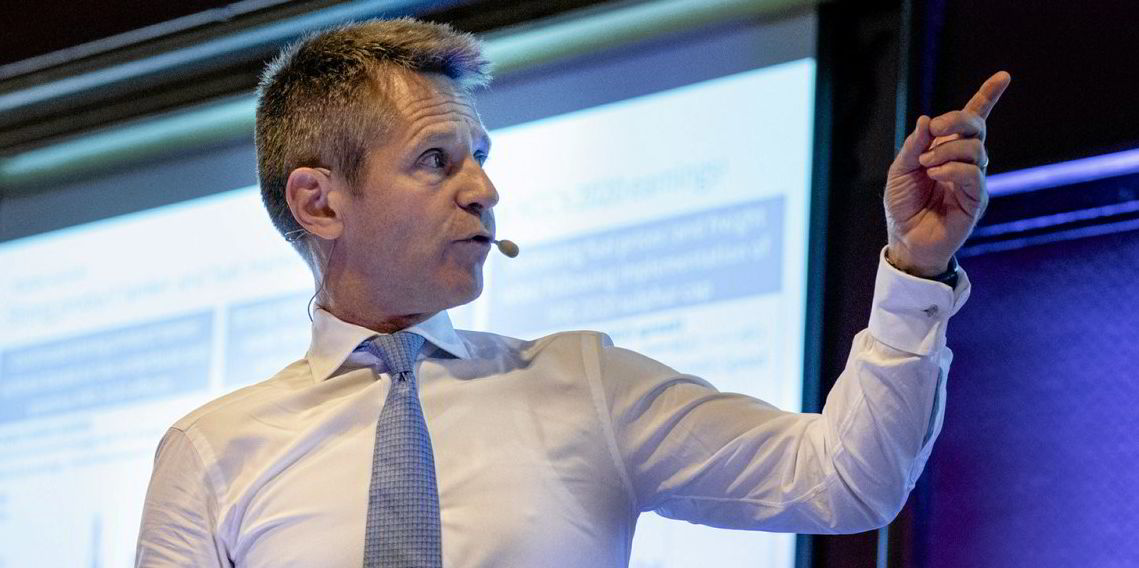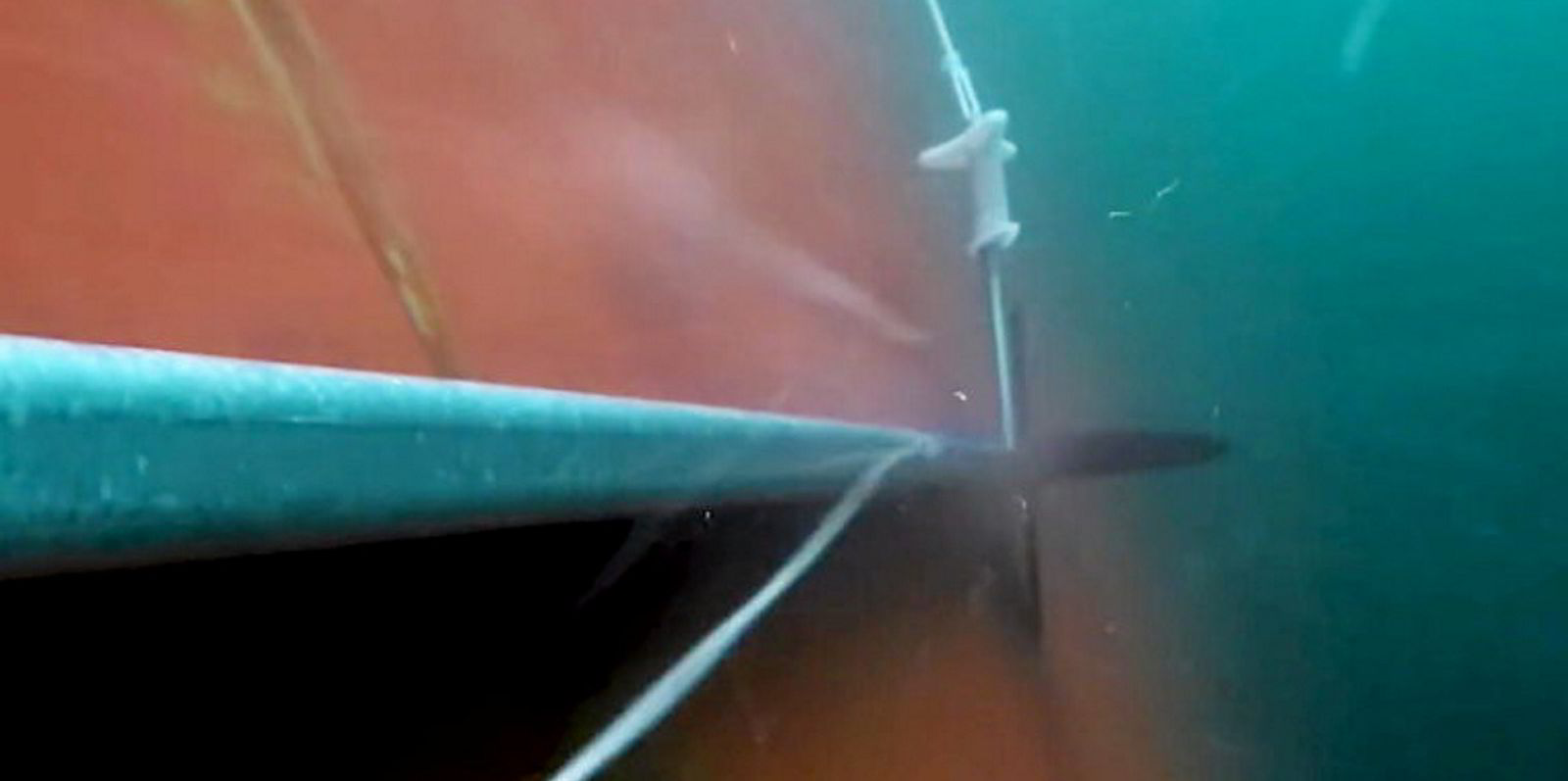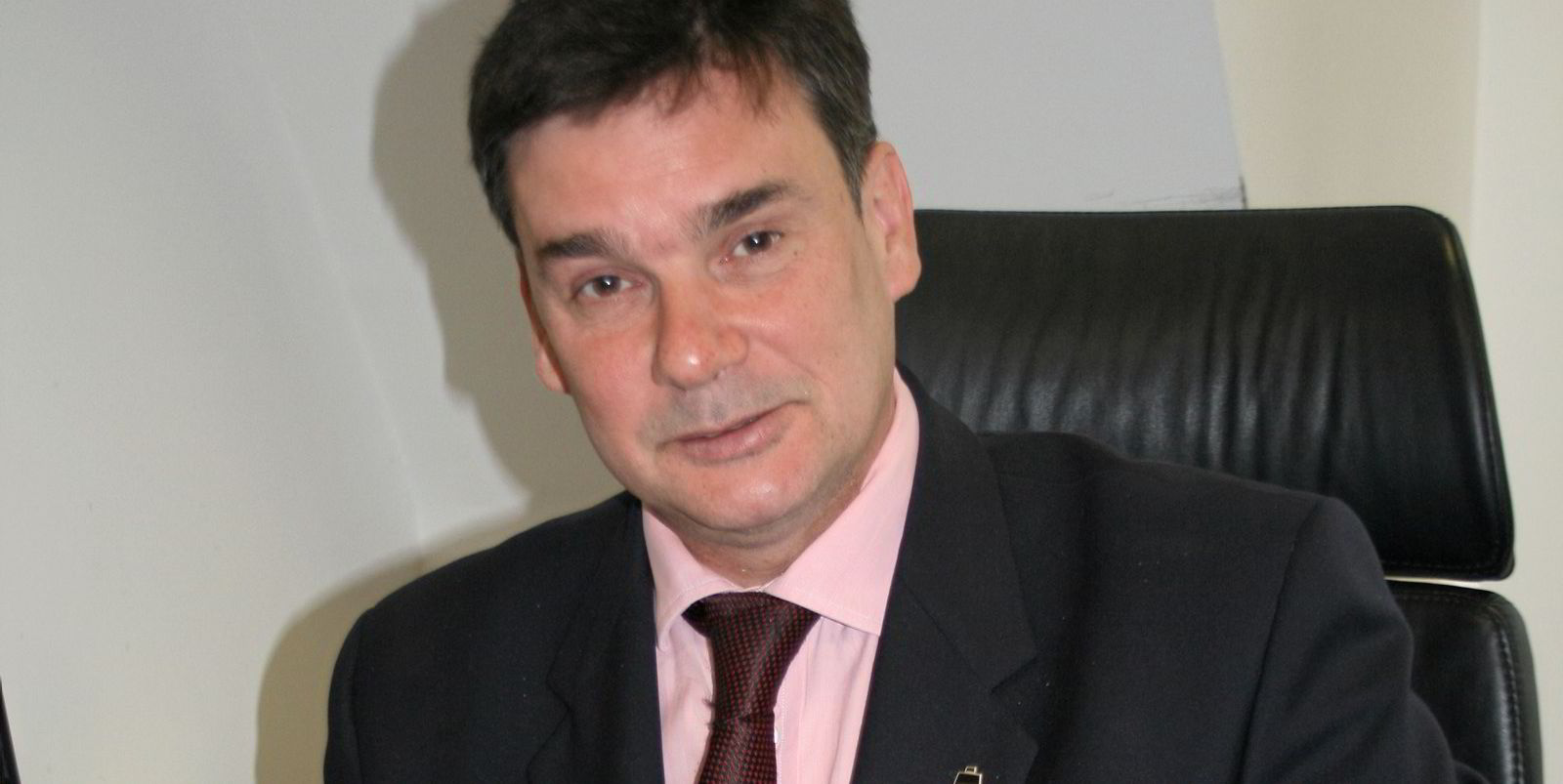Norway's Klaveness Combination Carriers (KCC) has banked NOK 213m ($25m) from what it claims is shipping's first share sale aimed at funding emission-reduction efforts.
The Oslo-listed company said the money from the private equity placement will be directed at making the existing fleet more energy-efficient.
KCC is targeting "significant" cuts in carbon emissions with the cash.
Its board has already authorised an extra $2.5m for new investments to help achieve net-zero emissions from the fleet.
"Through its energy efficiency programme, KCC is positioning for a future of increasingly strict decarbonisation regulations and customer requirements in the shipping industry," said chief executive Engebret Dahm.
Work will take place over "the next few years", he added.
"As the first equity issue in shipping dedicated to investments improving the energy efficiency of an existing fleet, the raised funds will be invested in measures being profitable at current fuel prices, with an upside potential once future shipping decarbonisation regulations kick in."
The company intends to carry out a follow-on offering worth up to $2.5m at NOK 49 per share, for those shareholders who missed out first time round.
Boss buys in
Klaveness Ship Holding, a company closely associated with KCC chairman Lasse Kristoffersen, who is chief executive of group company Torvald Klaveness, bought 2.3m shares in the private placement.
In October, KCC said it was trying to cut CO2 emissions further by rolling out semi-autonomous hull cleaning across its fleet.
It said it will "leave no stone unturned" in its decarbonisation quest after partnering domestic technology start-up Shipshave.
The letter of intent for the fleet cleaning followed a successful trial on the 80,200-dwt caustic soda and bulk cargo carrier Ballard (built 2017) this year.
Shipshave's In-Transit Cleaning of Hulls system is the first to operate while the vessel is sailing, with the main objective being to prevent the early-stage growth of hull fouling.
KCC's combination carriers already emit up to 40% less CO2 by carrying both wet and dry cargoes and eliminating ballast runs.
The company has said it will not order new vessels unless they can reach zero emissions.






